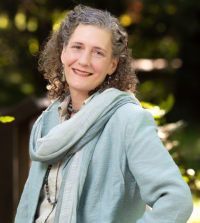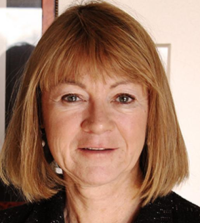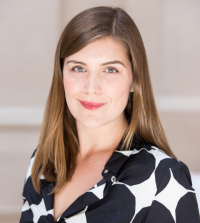
The Office of Public Scholarship and Engagement has unveiled its fifth class of Public Scholarship Faculty Fellows.
The Public Scholarship Faculty Fellowships provide concrete tools and opportunities for faculty who are navigating the unique challenges of public scholarship. The program embraces a broad and inclusive approach, recognizing that scholarship takes many forms across different disciplines and types of scholarly activity.
The cohort will meet monthly through March 2024 to provide participating faculty with a public scholarship peer group and structured time for advancing their projects. Guest speakers will bring their university and public scholarship expertise to the group. Each fellow will receive $1,000 in support of their initiatives.
The fellowship program is led by Tessa Hill, associate vice provost of academic programs in the Office of Public Scholarship and Engagement. The office cultivates and fosters a culture of engagement that recognizes and rewards public engaged scholarship, builds the collective capacity of UC Davis scholars, and increases the university’s impact through mutually beneficial partnerships that have local, regional and global reach.
The 2024-25 L&S faculty fellows are:
Eliza Bliss-Moreau
Chancellor’s Leadership Professor, Department of Psychology
California National Primate Center

Project description: Develop a proposal for a popular press book on animal emotions — the idea that emotions are socially constructed and inherently linked to one’s physiology and context, and therefore likely to be species-specific.
Bio: Eliza Bliss-Moreau’s multi-method, multi-level, multi-disciplinary, multi-species research program is focused on understanding the biological and social mechanisms that generate healthy and unhealthy emotions and social behavior, with the goal of developing new effective treatments and interventions for emotion-related psychopathology, and neurodevelopmental and neurodegenerative diseases that impact emotional processing. The Bliss-Moreau lab adopts a lifespan approach, studying nonhuman primates from infancy through old age, across levels of analysis — what the lab refers to as womb-to-tomb, synapse-to-social system affective science.
Liza Grandia
Professor, Department of Native American Studies

Project description: Building on her new book, Kernels of Resistance: Maize, Food Sovereignty, and Collective Power, write several op-eds and develop a bilingual website about what the U.S. food movement might learn from Mesoamerican food sovereignty movements and share curated Spanish resources about the hazards of herbicides used in genetically modified crops.
Bio: For the last three decades, Liza Grandia has collaborated as an activist-scholar with Indigenous, environmental, social, and agrarian justice movements in the Maya lowlands of northern Guatemala and Belize. She is the author of two books about Maya struggles for territorial autonomy and human rights based on seven years of fieldwork. Her third (forthcoming November 2024) book, Kernels of Resistance: Maize, Food Sovereignty, and Collective Power is a David and Goliath story about how Indigenous movements defied one of the most powerful corporations on the planet and won. As a survivor of cancer, long COVID, and a campus injury resulting in multiple chemical sensitivity, she brings to her work a passion for environmental health and “canary science.”
Jeannette Money
Professor, Department of Political Science

Project description: Explore why so few individuals use the United States Citizen and Immigration Service (USCIS) website portal to create accounts, apply for benefits, and track their applications, and develop policy recommendations that might consist of curricular development for citizenship classes and smartphone app development.
Bio: Jeannette Money's research focuses on various dimensions of international migration. She has published articles and books on states' immigration control policies, on international cooperation on migration and on issues of citizenship and migrant rights. For example, a recent article provides insights on gender differences in immigrants' naturalization decisions. Current research includes barriers to naturalization and immigrants' use of the USCIS (U.S. Citizenship and Immigration Services) website when applying for naturalization. Money developed a community engaged learning program on immigration for Quarter at Aggie Square, a UC Davis program where students can engage in an immersive learning experience in Sacramento.
Kayleigh Perkov
Assistant Professor, Department of Science and Technology Studies

Project description: Co-organize the exhibition “The Data at Hand: Data Physicalizations of Earth and Space,” which brings together artists who wrestle with information produced by earth and space scientists in an era of global change.
Bio: Kayleigh Perkov examines the intersection of handmaking and technology in the 20th and 21st centuries. Her current book project — Prototype Pastoral: Gender, Craft, and Technology, 1965-1980 — considers a diverse array of artists, engineers and craftspeople to tell a complex story of innovation and design. This project leverages feminist analysis and craft theory to reassert issues of labor and materiality in the history of technology. In addition to her scholarly writing, Perlov has maintained a curatorial practice as a distinct method of research. Her current exhibition project, “The Data at Hand,” examines artists who use craft techniques to physicalize data related to earth and space.
Jeanette B. Ruiz
Associate Professor of Teaching, Department of Communication

Project description: Develop a student-centered, student-facing website where students and university professionals contribute information for first-generation students, such as how families can support their first gen student, the importance of networking, etc.
Bio: Jeanette Ruiz’s research is aimed at increasing our understanding of media uses and effects processes. Past work has looked at the effects of online media on public health promotion. Currently, Ruiz’s work investigates the influence of exposure to stereotypical racial/ethnic content in the media on perceptions of self and others. In addition to her appointment in the Department of Communication, she has served as a human resources and public relations consultant for various nonprofit, managed health care and finance organizations. She is a CAMPOS Faculty Scholar and recently received the UC Davis Distinguished Teaching Award.
A version of this article originally appeared on the UC Davis Public Scholarship and Engagement website.
